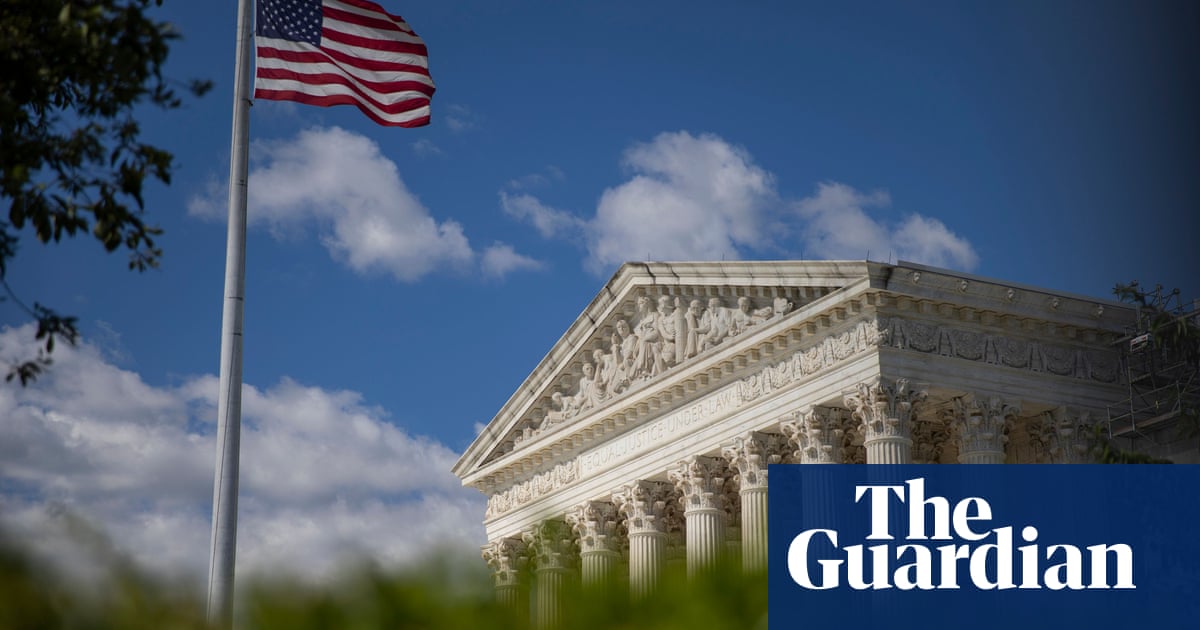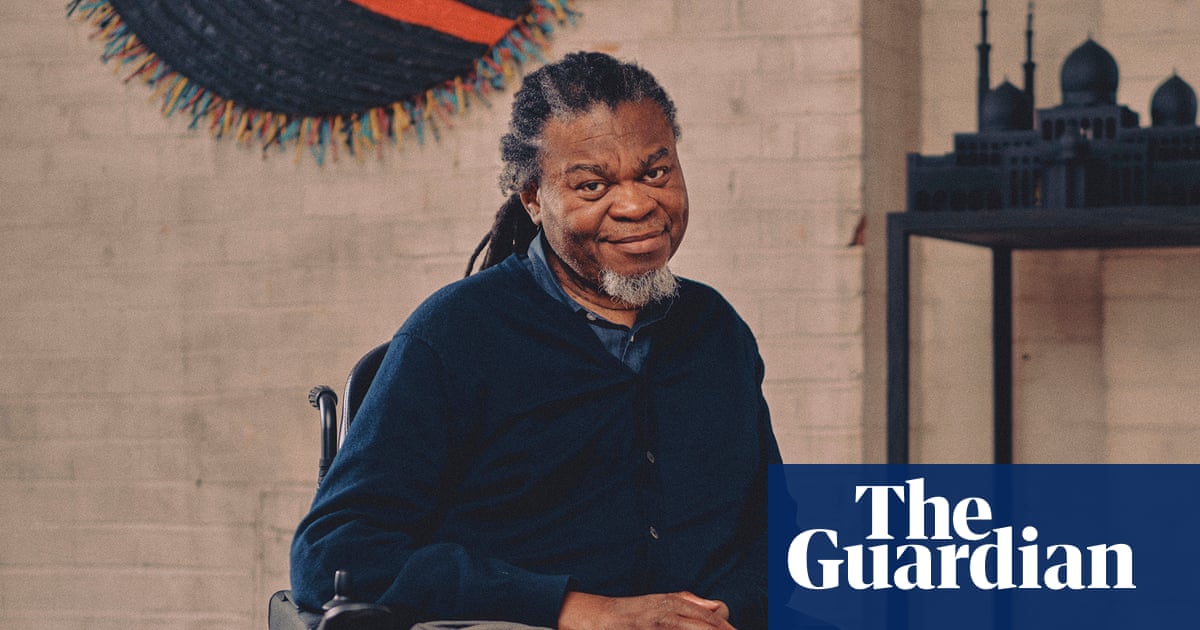In 2016, it was easy for the left to process Donald Trump’s election as a fluke – thanks to the electoral college, he’d essentially won on a technicality. But as he took office once again this month after winning the US popular vote, there is a sense that his every action comes with the tacit endorsement of the voting public.
Trump is, of course, far from the first American leader to be accused of cruelty. What’s striking about him is that he doesn’t pretend otherwise. Presidents in recent memory at least paid lip service to compassion; the new one has made exclusion, spite and bullying his brand. He seems to celebrate violating the basic rules we’re taught from infancy: be kind to others, share resources, welcome those who may seem different.
The result, for some who voted against him, has been a sense of alienation from their own country. How can neighbors have such a fundamental disagreement about seemingly basic concepts of rightness and justice? We’re constantly reminded that the country is politically polarized, but the country’s response to Trump 2.0 has seemed to indicate more than a rift over policy. It raises the question: are Americans functioning under entirely different moral codes?
It’s not a political question but an ethical one. To untangle it, the Guardian spoke with several moral philosophers before the inauguration – and they were surprisingly united in their response. At the most basic level, they said, there is more agreement than we think.
Moral similarity
Désirée Lim, an associate professor of philosophy at Penn State, described several ways of understanding our moral similarities and differences. First of all, there are some people with whom we can never square our views. “There are Trump voters who are just outright white supremacists, and I find it really impossible to reconcile their code with mine in any kind of meaningful way,” she said. But in many cases, we have similar values – for instance, freedom, security and equality – we just prioritize them differently. “I might think that security matters more than freedom and equality, and I’m willing to sacrifice some freedom and equality for more security,” she said.
We may also have different interpretations of what those values mean. For some, security might mean strict measures at national borders, while for others it might be about food security or shelter. “One of the biggest tragedies of the polarization in American politics is that people just fail to see that they really do want the same thing,” Lim said.
Zoë Johnson King, an assistant professor of philosophy at Harvard University, agreed that some values are remarkably consistent across the American political spectrum. For instance, though we have radically different understandings of threats to democracy, there’s agreement from both sides that it’s crucially important. Among those who wrongly claimed Donald Trump won the 2020 election, some powerful figures were, of course, acting in bad faith – but in an environment where misinformation was rampant and Trump was claiming victory, others genuinely believed an election had been stolen.
“They’ve gotten what I think is a super-mistaken view about what the threats to democracy are,” Johnson King said. “But they really care about democracy, and likewise, with things like freedom and equality, there’s actually quite a bit of very general agreement at the level of values.”
But “the points of disagreement naturally get all the attention”, she said. “They raise these pressing practical questions” – the issues that divide us, such as how to approach immigration or the climate crisis. And “because we need to answer those practical questions in order to figure out how to live together, that’s where all of our attention goes”.
Danielle Allen, James Bryant Conant university professor at Harvard and director of the school’s Allen Lab for Democracy Renovation, put it simply: “Our electoral system is polarizing beyond the reality of the American population.”
Striking a bargain
Even if people’s moral compasses do align, they may not seek a leader whose ethics match their own. In some ways, being able to do so is a privilege: a voter concerned about their ability to purchase groceries might feel a need to vote entirely on an economic basis.
In that way, several philosophers pointed out, voting is a sort of bargain, even a sacrifice: people may tolerate behavior or values they oppose in order to get something else they want. For some, it might be about the cost of living; for others, it might be a single pet policy; for others, it could be a desire for change, or a sense that they have long been denied a voice in American politics.
“A lot of people who were voting for Trump were voting against the status quo, because they felt like the status quo wasn’t really serving them,” said Sukaina Hirji, an assistant professor of philosophy at the University of Pennsylvania. “People were very desperate, wanted to see any kind of change, and were feeling a lot of frustration, and felt that Trump was at least kind of validating and giving voice to that frustration.”
The result is a large coalition of voters for Trump – easy to falsely interpret as a monolith, as several philosophers noted. Johnson King offered what is perhaps a more accurate way to look at it: “On this particular world-historic occasion, a whole bunch of very different reasoning processes that have different values and beliefs and weightings and priorities as input all happen to converge on the same action: vote for Trump.”
‘A complex species’
Nor are we as individuals morally monolithic. Dacher Keltner, professor of moral psychology at the University of California, Berkeley, and author of The Power Paradox: How We Gain and Lose Influence, is a firm believer in human goodness, which he defines as behavior that serves “others’ interests above one’s own”. He and several colleagues pointed to an Aristotelian understanding of goodness – valuing courage, magnanimity and honesty, among other traits. Keltner contrasted that with machiavellian values, “all about self-interest, coercion, dominance”.
“We are deeply good. Studies find we share 40% of a resource with a stranger, children routinely assist others and cry the first day of life at others’ cries, that we are wired to care,” he wrote in an email. “And thanks to evolution, at the same time we are greedy, rapacious, violent, genocidal, and narcissistic. We are a complex species.”
Which side of us wins out in the voting booth depends on the political moment. “Certain contexts favor the rise of more domineering, coercive strongman forms of power over collaborative, compassionate forms of power,” Keltner said. Among those contexts: “economic inequality, a sense of resource scarcity, a distrust in social and political institutions, the immersion in the new social media, which, studies find, enhance a more cynical view of power and politics and society.” “All of these conditions are acute in the US right now,” he said.
Other thinkers acknowledged similar moral complexity.
Lim sees humans as “oriented towards stability, reciprocity and cooperation” – great when applied to, say, caring for a friend; less great when applied to, say, fascism.
Johnson King, meanwhile, believes humans deserve “partial credit” for goodness. “It’s way too oversimplified to ask which people are going in the bucket ‘good person’ and which are going in the bucket ‘bad person’,” she said. People have a wide range of moral beliefs and decision-making principles. We have little trouble seeing this nuance among our friends and family, but when it comes to politics, it’s much easier to reduce those around us to simply good or bad.
Also, as Hirji noted, our moral behavior doesn’t exist in an individualist vacuum – it’s dependent on community. “You’re never going to become a fully good person if you’re just trying to do it on your own,” she said. “We need a good, well-functioning political community that kind of helps us all be good, that kind of cultivates virtue and its citizens.”
Other philosophers also highlighted the importance of environment, citing an Aristotelian view that if our leaders are mostly good, we tend to be good, and if they’re mostly bad, we tend to be bad – even if we’re unaware of their influence. Humans are hardwired to imitate; it’s how we learn. (That may help explain the explosion in toxic online behavior in recent years.)
If we find others’ views troubling, we shouldn’t rush to blame the individual, Hirji said. “I think the problem is kind of more systemic – it’s about what people’s access to information is like, what people’s everyday circumstances are, what are the institutions that seem like they actually are caring about these people’s needs?” she said.
When we reflect on the election, we should resist the “seductive and simple” take, Hirji added, saying: “I think it’s really important for us to try and combat that narrative so that we can actually have solutions going forward.”
Ultimately, we don’t know what goes through others’ minds when they vote. “People don’t vote based off moral codes. I also don’t think they vote off facts,” said Lim. “Trump is successful, in my view, because he is able to conjure up feelings in people that other politicians simply cannot.” As we face four years of a country molded in Trump’s image, perhaps the bigger moral question is not the decision we made at the ballot box in November, but how we confront the crisis already taking shape.

.png) 2 months ago
25
2 months ago
25













































